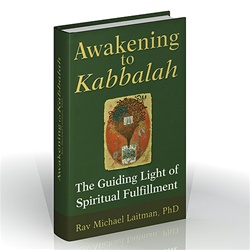Did You Know That There Are 5 Stages of Human Desires?
The development of humankind over thousands of years is a realization of different levels of desire. The search for ways of fulfilling these emerging desires determines this or that level of civilization’s evolution and everything we define as technological and scientific progress.
Because desires constantly improve, evolve from smaller to bigger, humankind advances. Kabbalah divides the entire complex of human desires into five stages:
- Primary stage or still degree: need for sex and food
- Second stage or vegetative degree: striving for riches
- Third stage or animate degree: craving for power and fame
- Fourth stage or speaking degree: thirst for knowledge
- Fifth stage or speaking within the speaking degree: aspiration to spirituality, to the Creator
The Desire for Spirituality Is the Greatest Human Desire
The need for sex and food are the same desires as those of animals. Even in complete isolation, we would still feel hunger and the urge to reproduce, to have sexual relations.
Desires for wealth, power, fame, and knowledge are human desires, since to satisfy them one must be surrounded by other people.
We are born, our animal and human desires develop, and then we find out that their realization does not satisfy us, since our secret but true aspiration, which we cannot yet realize and formulate, falls outside the boundaries of this world.
We receive this desire from above. It is neither given by nature as animal desire, nor does it develop under the influence of a society as do human desires. Kabbalah calls this level of desire “the desire for spiritual light” or “the soul.”
Why Kabbalah Is Essential for Spiritual Development
Kabbalah studies the spiritual construction named “the collective soul” or “Adam.” This construction consists of 600,000 parts, each of them splitting into a multitude of frag- ments, located inside our earthly desires.
The sum total of earthly desires is called “the heart.” The fragment (desire), placed in the heart from above, is referred to as “a point in heart.”
During our biological lives in this world, we should completely fulfill our spiritual desire. We will keep returning to our world until this goal is reached. Thus, each generation in our world constitutes the same 600,000 souls, vested in the bodies of our world.
Each generation is the same 600,000 souls progressing forward to be filled by Supreme Light. The body dies, and the soul moves on and dresses in a new body, works in it again for the sake of being filled, until at a certain stage of development it will be filled with the Supreme Light.
Why Eventually Everyone Develops an Immense Desire for Spirituality
Most people feel only the needs limited by the framework of our world. These include creative, intellectual, and cultural aspirations and the need to research and understand the structure of our world. This indicates that souls dressed in the bodies of these people have not yet reached a desire for spirituality—the fifth stage of our desire’s development. Souls of this type do not harbor aspirations to develop beyond their worldly bodies.
However, there are souls of a different type. Being installed in a protein body, such souls force one to long for something unearthly and eternal. Like others, these people try to be satisfied with what this world can provide, but to no avail. They see how other people crave for riches and success and realize it is no more than a game. They participate in these “games,” often with success, but it brings them no satisfaction.
Gradually, disappointed and disenchanted, those people begin to feel that their souls demand a different kind of satisfaction. In that state they begin to look for the way to fulfill the new, spiritual desire.
However, since the spiritual desire descends from above, it cannot be filled with objects of our world. Kabbalah teaches how this most exalted desire can be filled. They name the desire for spiritual fulfillment “a point in the heart.”
Do You Have a Desire for Spirituality?
An individual cannot impose on him- or herself the desire for spirituality. Rather, he or she wishes for different things in this life and at a very unexpected moment a desire for spiritual- ity awakens. When that happens, the person begins to search and continues to do so until he or she finds the wisdom of Kabbalah.
If a person has that desire, then Kabbalah deals with its realization. If there is no desire, that person will never approach Kabbalah in the first place. That is why there is no coercion in spirituality, and there is no commitment to practice it. Only those who have a desire will approach Kabbalah, which testifies to the fact that their time has come to draw near the Creator.
All souls are parts of a single collective soul, but each of them develops at its own pace. That is why there are souls that demand spiritual development right now, and then there are souls that can wait. Most souls are still developing within the framework of our world.
If a person is still at the stage when he or she hasn’t come to realize where to proceed and why but only feels a vague desire for spirituality, it might take years and perhaps lifetimes before he or she comes to Kabbalah. That will be the case with the whole of humankind, as the prophet Jeremiah says: “For they shall all know Me, from the least of them unto the greatest of them” (31:33). Thereby, imposing the wisdom of Kabbalah on anyone is simply impossible.
 “The Secret of How the Desire for Spirituality Develops in a Person” is based on the book, Awakening to Kabbalah: The Guiding Light of Spiritual Fulfillment by Dr. Michael Laitman.
“The Secret of How the Desire for Spirituality Develops in a Person” is based on the book, Awakening to Kabbalah: The Guiding Light of Spiritual Fulfillment by Dr. Michael Laitman.
![]() Start Your Kabbalah Studies Here: Take a Free Kabbalah Course »
Start Your Kabbalah Studies Here: Take a Free Kabbalah Course »






